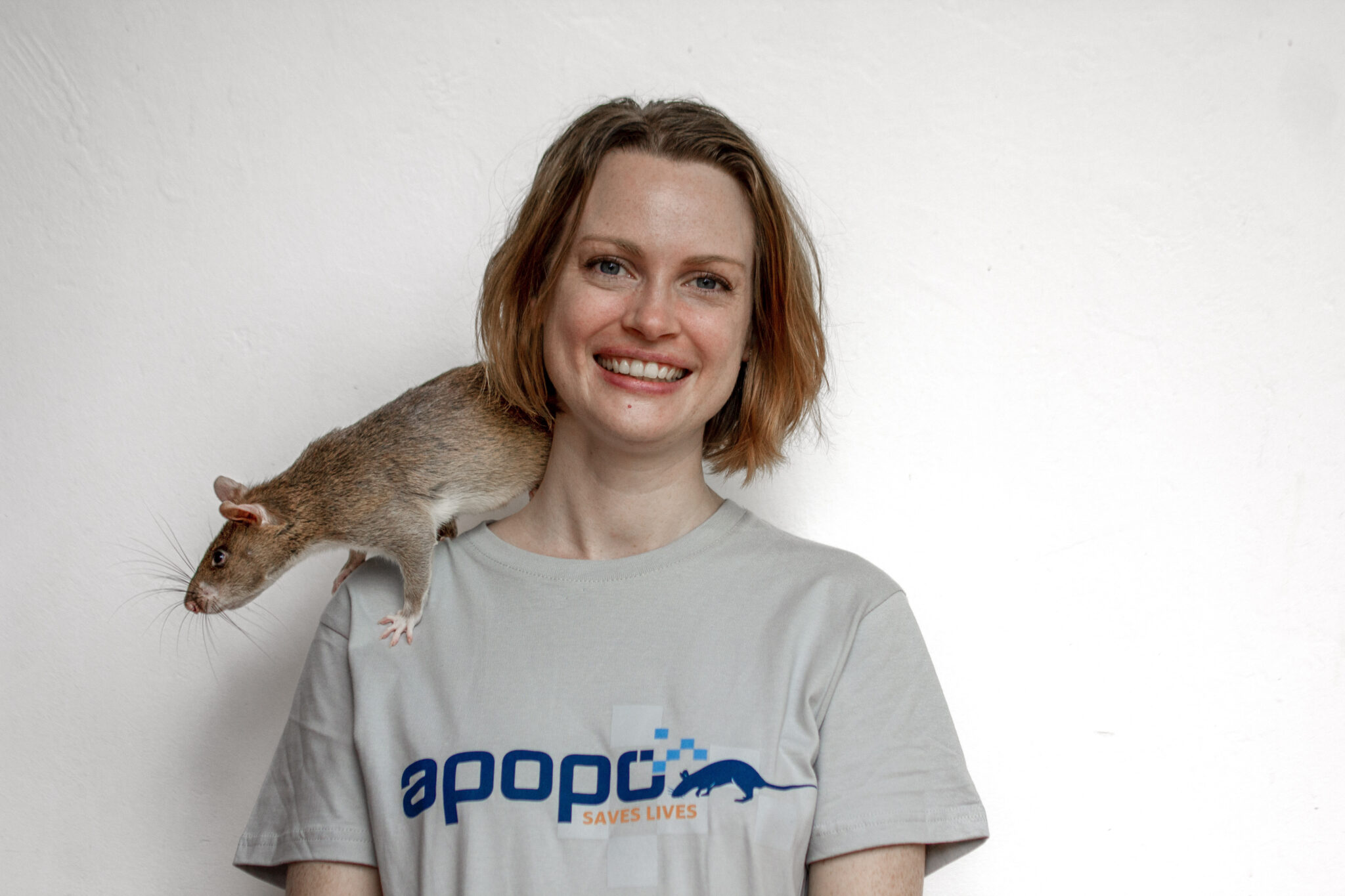International Day of Women and Girls in Science
This International Day of Women and Girls in Science, we are delighted to introduce an engaging interview with Madeleine Mason, a passionate PhD candidate whose scientific background spans the fascinating field of behavior analysis.
Currently immersed in her dissertation research at APOPO in Morogoro, Tanzania, Madeleine is pioneering methods to teach African giant pouched rats to identify scents through “matching-to-sample” techniques. In the future, this research and training may allow each rat to search for any specific scent that they are presented with, rather than limiting training to a specific one.
Her work not only contributes to the science but also showcases the impact of women in STEM fields. Madeleine’s journey and insights offer a powerful story that shows the importance of female representation and innovation in science.
Join us in celebrating Madeleine’s achievements and the crucial role women and girls play in shaping the future of scientific discovery.
What is your scientific background?
My scientific background is in behavior analysis, which is the science of behavior – of what we do and, more importantly, why we do it. Just like there are laws of physics and chemistry which govern all motion and matter, there are also laws of behavior that influence what we do (whether we are aware of this influence or not). Behavior analysis seeks to understand these rules and principles that govern our behavior, many of which also apply to the behavior of animals.
Because behavior analysis focuses on principles common to all behavior, I’ve had opportunities to study a variety of topics, from learning and memory in rats to language development in children. I’ve worked as a behavioral therapist for children, teens, and adults with developmental disabilities, and later this year I will begin a postdoctoral research fellowship in substance use treatment with a focus on how public policy affects tobacco use. Any type of behavior can be studied through the lens of behavior analysis!
How did you choose your field of study?
I was interested in becoming a clinical psychologist and joined a research lab at my university just to boost my resume. I ended up falling in love with basic behavioral research, but I also wanted to be able to work in a field that helps people. I’m not exactly sure how I learned about Applied Behavior Analysis, but at some point, I realized that it combined both these things: scientific research and helping people!
What are you working on at the moment?
I’m currently working on my dissertation, which I need to finish to graduate with my PhD! My dissertation is a series of experiments on whether and how rats learn about the concept of “sameness” through their sense of smell; both physical sameness (e.g., cinnamon here is the same as cinnamon there) and symbolical equivalence (e.g., cumin and ginger are physically different, but they belong in the same category, just like “A” and “B” don’t look the same but they are both letters). My project with APOPO is focused on teaching African giant pouched rats to identify scents that are physically the same – this is called “matching-to-sample” because rats are given a sample odor and then asked to find the matching from an array of choices. This research could help working rats be more flexible in their searching abilities.
What is the funniest or most memorable thing that has happened to you while working in science?
I attended a conference on animal behavior recently, and during the final keynote address, a group of professors gathered at the front of the room and performed a version of “Sunrise, Sunset,” reworked to be about academia.
What challenges have you faced as a woman in STEM? And how did you overcome them?
Imposter syndrome, being treated dismissively, constantly feeling the need to prove myself, then questioning whether all this is in my head, whether I’m actually facing these challenges or if I’m just overreacting to the normal parts of academia that everyone has to deal with. To overcome these challenges, I’ve learned to be more assertive and to be a better advocate for myself. But really the two best remedies have been 1) building relationships with other women in science who understand and validate me, who offer helpful insights or just let me vent or share a joke, and 2) reminding myself of the words of one of my mentors: “Don’t believe everything you think.” Not every negative thought we have is true, and we don’t have to react to thoughts, feelings, or narratives that are not helping us.
Of course, for every challenge I have faced, I have also had amazing opportunities, experiences, and interactions with people who have empowered me, supported me, and challenged me to do my best work. You have to surround yourself with the right people!
If you could give advice to young girls in STEM (or a younger version of yourself), what would that be?
It’s okay to be good at math. It’s more than okay, it’s great! I remember pretending to be bad at math in 8th grade, then making a point if not caring about it in high school, which is regrettable. Math is important and honestly really cool! According to Galileo, “the language of science is mathematics.”
Another piece of advice: So much of what I have accomplished I can attribute to simply being in the right place at the right time. Seriously consider every opportunity that interests you even a little bit – it doesn’t have to be the thing you devote your life to, but who knows where it could lead or what you could learn. Take chances. And this is easier said than done, but never question whether you “belong” in a certain field – girls like you do belong, and many will follow in the path that you blaze.

